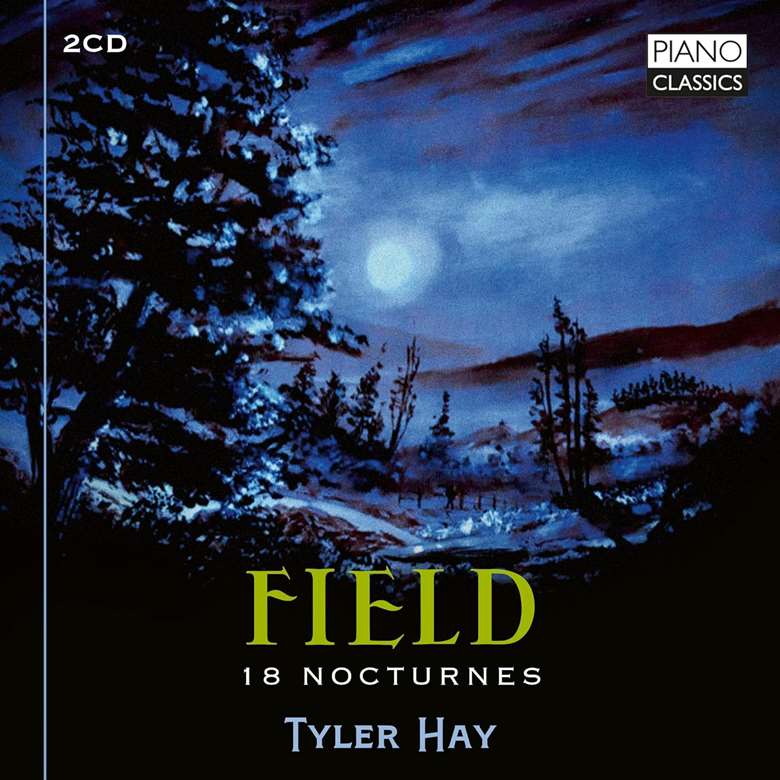Field: 18 Nocturnes (Tyler Hay)
Jonathan Dobson
Friday, March 8, 2024
Tyler Hay’s performance draws as much attention to Field’s similarity with Dussek, Hummel, late Clementi and even Beethoven as to his influence on Chopin

Until relatively recently, the Irish composer John Field was a footnote in music history – known as the ‘inventor’ of the Nocturne and for his waspishly jealous dismissal of Chopin as ‘a sickroom talent’, a tacit admission that Chopin’s genius had taken his simple format in an altogether more sophisticated direction. Apart from some isolated pioneering recordings in the 1930s by Frank Merrick and Louis Kentner, Field was largely ignored by the record industry until the 1970s, when interest in proto-Chopin had become a selling point. Since then, there have been several important recordings of Field’s music, the latest being this set of the 18 Nocturnes by a rising superstar among British pianists, Tyler Hay.
Apart from Chopin’s famous E flat major Nocturne, Op 9 No 2, and a couple of posthumously published early works that are clearly influenced by Field, Chopin’s works in the genre are a technical and emotional departure from the form Field established. Listening to Field’s original concept – a simple arpeggiated bass line with a flowing vocal-like melody, often decorated by coloratura-type figurations – it becomes clear that once Field had established a successful musical blueprint, he made few attempts to deviate from or develop it.
Tyler Hay’s performance draws as much attention to Field’s similarity with Dussek, Hummel, late Clementi and even Beethoven as to his influence on Chopin. Hay is an intelligent and accomplished pianist with a stellar career ahead, and although there is great beauty, technical finesse and line in his playing, I feel that these relatively straightforward works don’t give him quite enough to do – like driving a Ferrari on roads with a speed limit, eager to put his foot down. Hay has the temperament and tonal colour for the big Romantic literature but in his Field I missed some of the reverent, fragile delicacy and insight of John O’Connor’s set for Teldec. That said, there is still much to admire in sure-footed performances that clearly demonstrate tremendous potential. The engineering is superb.
This article originally appeared in the Spring 2024 issue of International Piano. Never miss an issue – subscribe today







